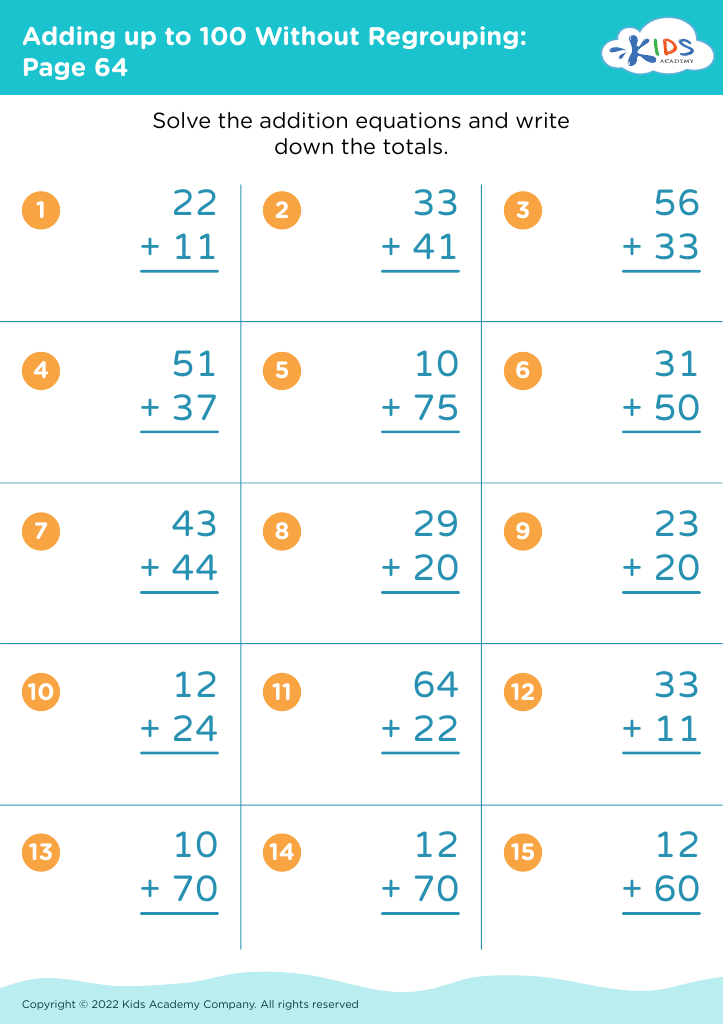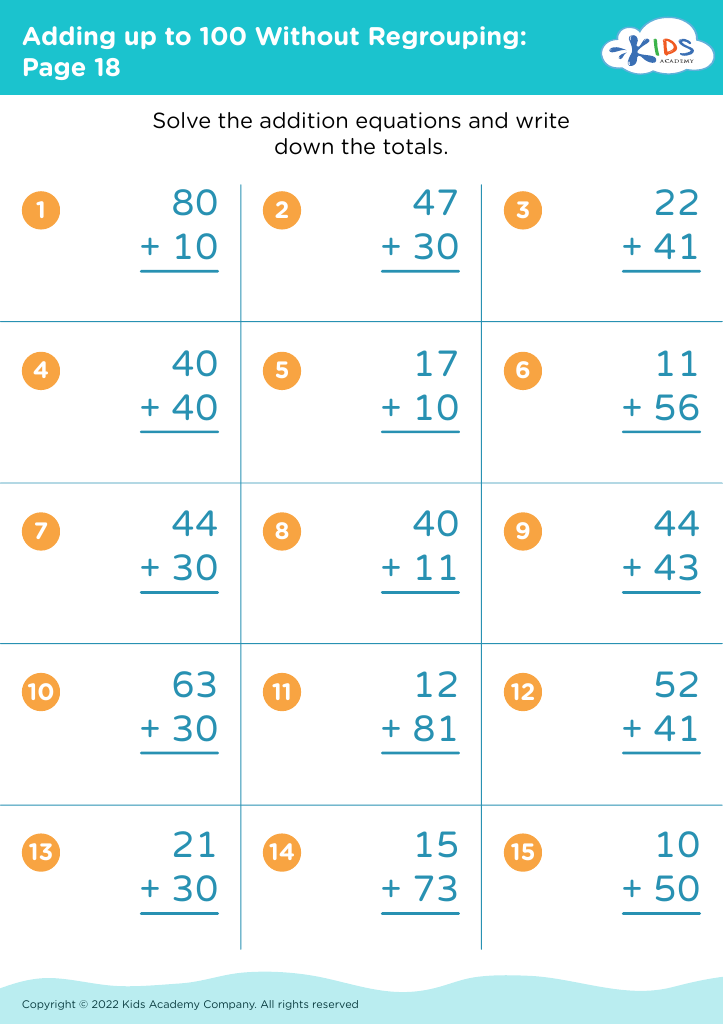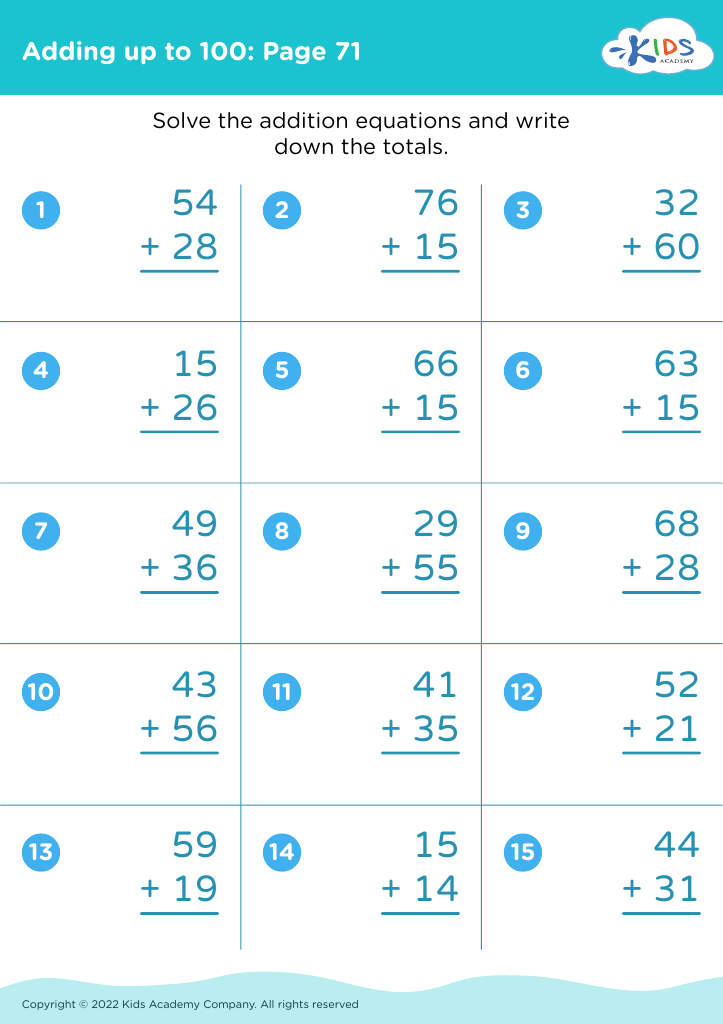Problem-solving practice Adding up to 100 Worksheets for 7-Year-Olds
5 filtered results
-
From - To
Welcome to our "Problem-Solving Practice: Adding Up to 100" worksheets for 7-year-olds! Designed to enhance critical thinking and arithmetic skills, these engaging worksheets provide fun challenges that help young learners master addition and develop problem-solving strategies. Each activity is carefully crafted to encourage exploration of different methods to reach the total of 100, making math both enjoyable and educational. Whether used in the classroom or at home, these worksheets aim to build confidence in math while fostering a love for learning. Equip your child with the skills they need to succeed in math with our comprehensive practice resources!
Problem-solving practice that focuses on adding up to 100 is crucial for 7-year-olds because it enhances their mathematical skills, promotes critical thinking, and builds confidence. At this age, children are developing their foundational understanding of arithmetic, and mastering addition lays the groundwork for more complex concepts in the future. When children practice problem-solving with sums up to 100, they learn to approach challenges methodically, breaking larger problems into manageable parts, which fosters resilience and perseverance.
Additionally, engaging in these practices allows children to experience real-world applications of math, making the subject more relevant and interesting. It encourages exploration of various strategies and can lead to discussions about different ways to solve a problem, enhancing communication and collaborative skills.
Furthermore, solving problems increases cognitive abilities as children learn to analyze situations, identify patterns, and deduce solutions. For parents and teachers, nurturing these skills not only supports academic success but also fosters a love for learning and developing a growth mindset. As children gain confidence in their problem-solving abilities, they are more likely to embrace challenges in other subjects, setting a solid foundation for future learning and life skills.










%20(1).jpg)








